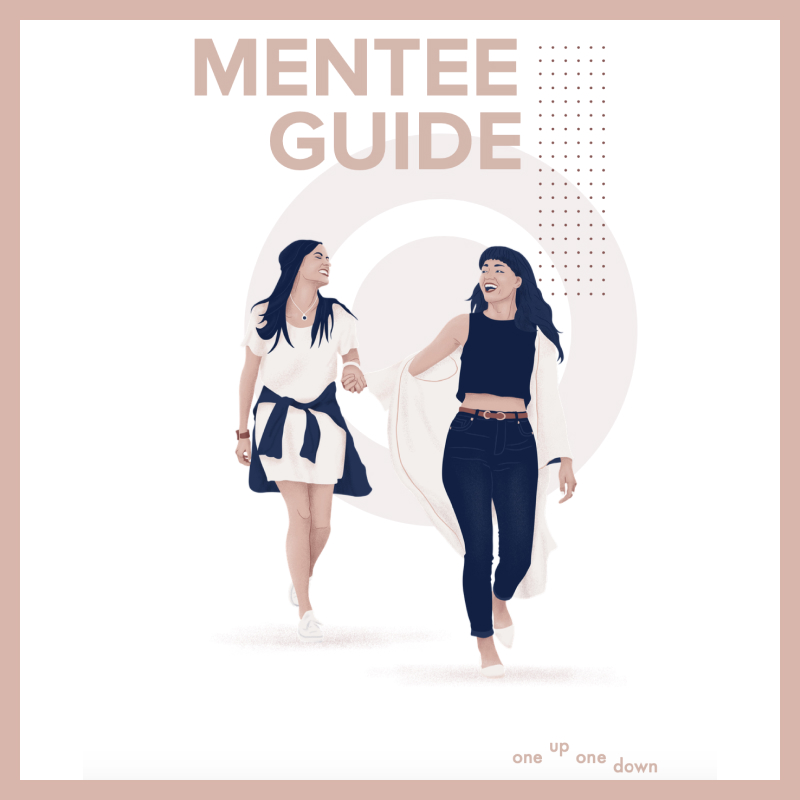Mentee Guide
THE ROLE OF A MENTEE
Mentorship is a relationship designed to build a mentee’s confidence and support them to make decisions while taking control of their learning and development.
As a mentee, your role is to be open and honest with any challenges you’re facing or areas you’d like support in, and shape the conversations so you get what you need out of the sessions. The mentoring relationship is a two person effort, therefore it’s important for you to drive the conversation as much as the mentor. Additionally, it’s your role to take action based on your sessions, then build on them as you go .
Here are a few tips for how you can approach and manage your mentoring relationship:
- Learn as much as you can about your mentor, their experience, what they’re good at and how you can use the three months to take advantage of their knowledge and experiences. This is particularly important in preparation for your first session.
- Agree on your relationship expectations upfront. It’s important to set clear expectations around how you would like your relationship to work best. This may include discussing: varying communication styles, frequency of meetings, method of meetings (online vs in person), being clear on your desired outcomes etc.
- Be open and honest in discussion. Conversations should be two ways and the discussion co-shaped by you and your mentor. Be open and honest with your communication and don’t be afraid to give feedback as well as challengethe conversation where you see fit. Being honest and authentic with your communication will help build trust and allow your mentor to provide support appropriately.
- Remember, you know yourself better than anyone. It’s important to remember that mentors are offering support and advice based on their learned experiences. What they offer might not always be what you need and/or want to hear. Remember, you know yourself better than anyone so if you feel as though a piece of advice doesn’t align with you, you don’t have to take it on.
- Take action. If you and your mentor agree on actions to take as a result of your session, we highly recommend doing them! Progress comes from putting in the work and when your mentor sees that you are doing this, they’ll feel that their time is valued and they’re doing a great job supporting you. Report back to your mentor after you’ve taken these steps to see what worked and didn’t work so you can both learn from it.
- Be proactive with your communication and when booking in your next meeting. Try to respond to your mentor as soon as possible, so they know they’re adding value and/or you’re interested in continuing the mentoring relationship. If you do find you can no longer continue, be proactive in communicating with us (OneUpOneDown) so we can find
FIRST MENTORING SESSION
The purpose of your first mentoring session is to establish your mentor-mentee relationship with regards to direction, expectations either you or your mentor have, and desired outcomes. Part of having a great experience as a mentee and feeling as though it has been valuable having the support, is getting clear on what you’d like to achieve from the beginning.
Additionally, your first session is a great chance to get to know each other better, to understand why you were matched, how your mentor can add the most value and how you’d like your sessions to run. We recommend using this session to agree on the frequency of meetings, best communication method and/or platform, agreed topics of discussion, the scope of the relationship and more.
To start, here are a few questions you can ask your mentor to get to know them and understand which of their experiences you can tap into:
- Can you please tell me more about your background? Did you study? Which job(s) have you had until now?
- Can you please tell me about how you became a […Product Manager at X company]?
- What are some of the qualities that you have, or have developed that have contributed to your success in this role?
- What have been some of the most challenging hurdles or biggest learning curves you’ve experienced along the way?
- Can you tell me about your experience in [Entrepreneurship and Marketing]? Fill in the brackets with the areas you were matched in.
- What are your expectations of me as a mentee?
- What made you decide to sign up to be a mentor?
- Do you have experience as a mentor? If yes, are there aspects of those mentoring relationships that worked well that we could bring into ours?
- How can I help you also get value out of this relationship?
- A brief background of both your personal and professional lives to date (we suggest incorporating both as they are so very intertwined!)
- Key or pivotal moments to date that have contributed to the way you think and/or approach situations
- Why you’re looking for support from a mentor
- Whether you’ve been a mentee before and if yes, anything that did or didn’t work well
- Any notable strengths and weaknesses you have
- Where you’d like to take your career and/or life. Where do you see yourself in 1,3,5,10 years?
